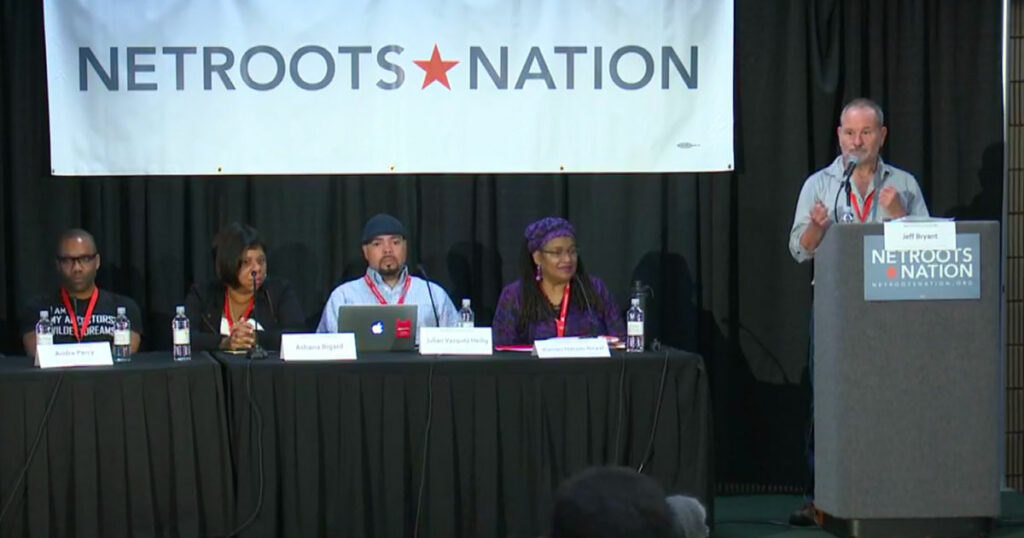Blog
Hurricane Lessons: What We’ve Learned from Post-Katrina Disaster Capitalism in NOLA Schools

On Thursday, August 2, Jeff Bryant of the Education Opportunity Network moderated a Netroots Nation panel on education privatization in New Orleans, and the lessons we can learn from the struggle of New Orleans residents to reclaim their public schools.
Following Hurricane Katrina, the state of Louisiana took more than 120 public schools in New Orleans in the name of “recovery.” A state-appointed board fired 7,500 unionized school employees (many of them black), and handed over most schools to charter school management companies. Under privately-operated rule, schools open and close frequently, routinely weed out more “difficult” students, and push kids out by inflicting harsh discipline—a pattern that’s being replicated across the country as school reform efforts take hold. Locals have little to no say in school governance and practices. Some are optimistic that the local school board will regain control of 52 state-run charter schools by summer 2018—but accountability and transparency are far from guaranteed. The panel discussed the evolving tactics of disaster capitalists and how communities can navigate these issues to push for progressive change.
Panelists included: New Orleans social justice organizer Ashana Bigard, education advocate Karran Harper Royal, Brookings Institution Fellow Andre Perry, and writer/researcher Julian Vasquez Heilig.
Ashana Bigard detailed the ways that New Orleans charter schools contribute to segregation through pushing out low-income and special needs children via harsh disciplinary measures — while the charter got to keep most of the money allocated to that student. “We used to call October 1 ‘Dump Day,’ because it was the day that the school got half the funding for the child,” she said. What schools could do is rack up enough suspensions on students to expel them. “You’ll have people who got three suspensions for something like talking out of turn, the wrong color socks, late for class three times, [or] chewing gum.”
Karran Harper Royal mentioned that when she speaks in other cities to parents and community members about privatization, “I tell them that New Orleans is the canary in the mine, and the canary is dead. This is not something that should be exported to other communities.”
Panelists also connected the privatization after Katrina with the privatization push happening right now in Puerto Rico, accelerated after Hurricane Maria.
Watch the full panel discussion here:


